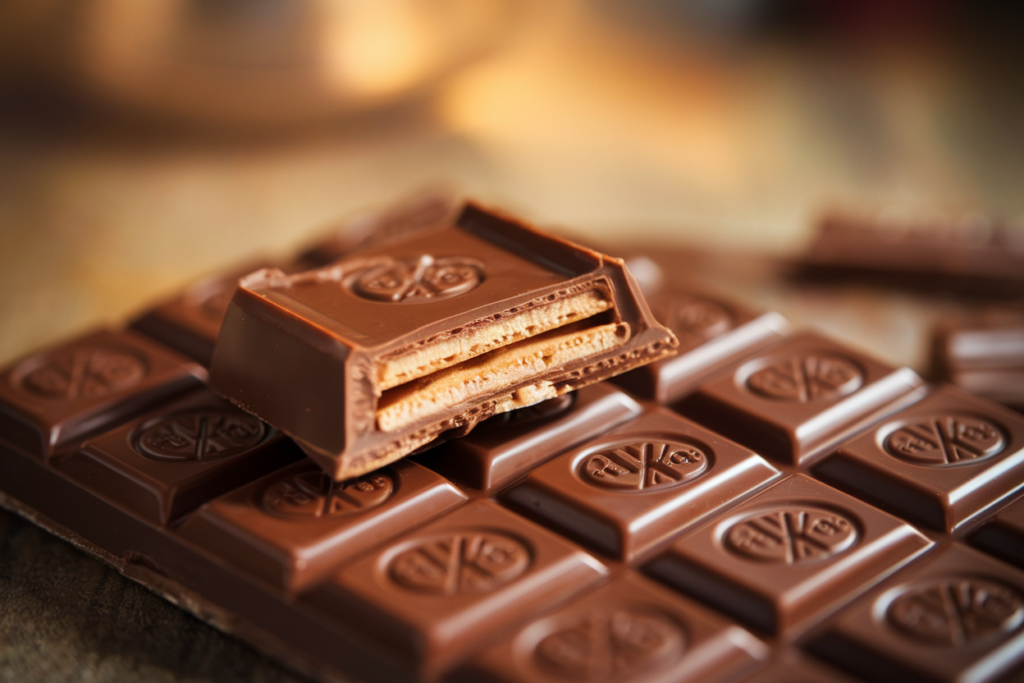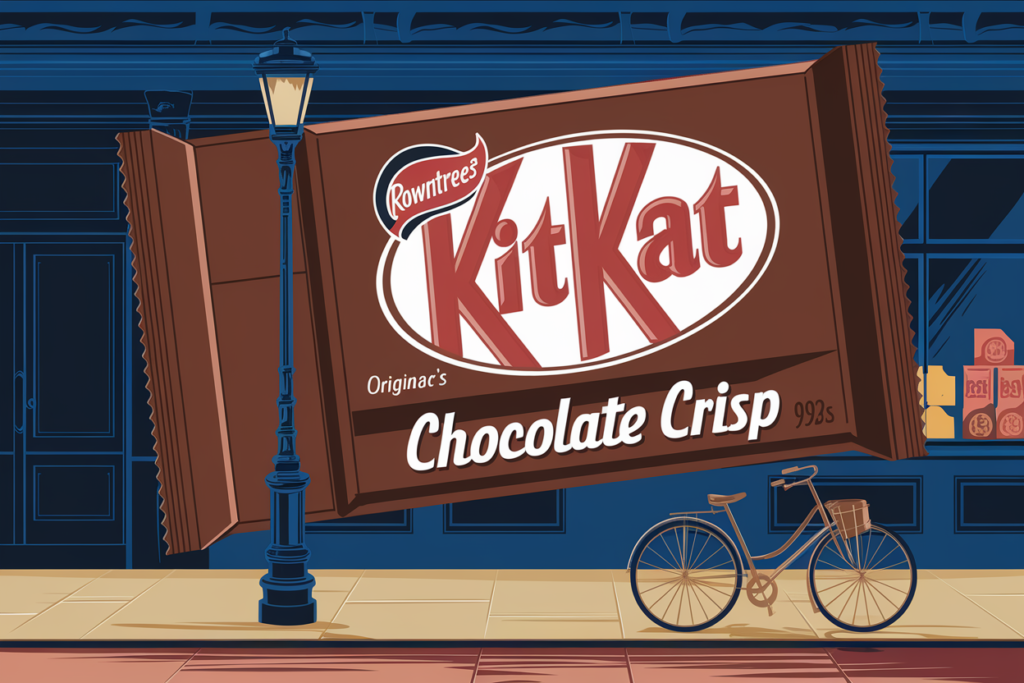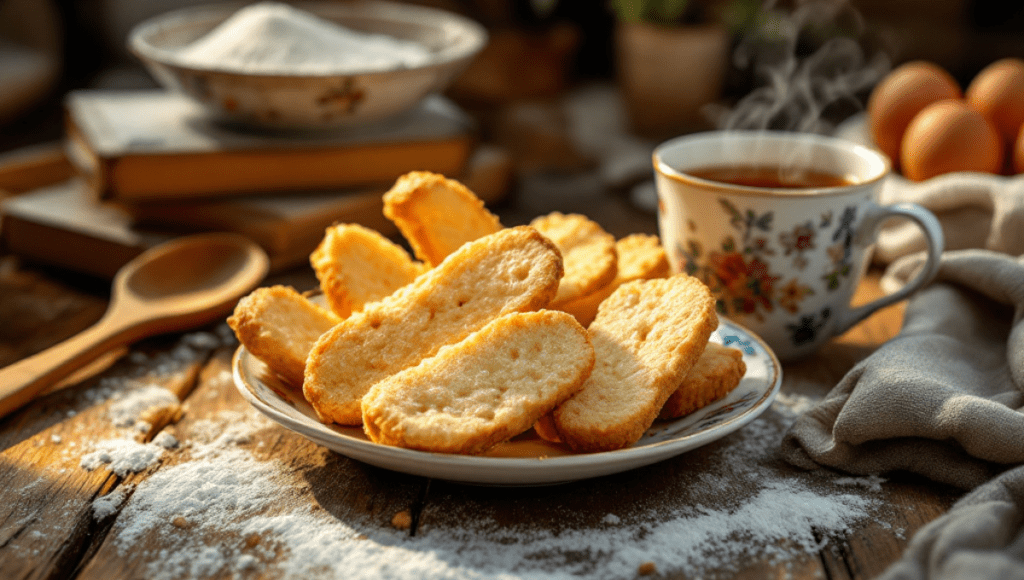The KitKat chocolate bar is more than just a sweet treat—it’s a global phenomenon that has captivated taste buds for nearly a century. With its iconic crispy wafer layers coated in smooth milk chocolate, KitKat offers a unique texture and flavor that makes it a favorite snack for millions. In this article, I’ll dive into KitKat’s history, varieties, and quirky cultural impact, while sharing my personal experiences, including a hilarious mishap I faced while enjoying this chocolate bar on the go.

The History of KitKat: From Humble Beginnings to Global Fame
Introduced in 1935 by Rowntree’s of York (now owned by Nestlé), KitKat was originally marketed as “Rowntree’s Chocolate Crisp.” Its name changed to “KitKat” in 1937, inspired by the 18th-century Kit-Cat Club, a London literary society. The brand’s slogan, “Have a Break, Have a KitKat,” debuted in 1957 and remains one of the most recognizable taglines in advertising history.
Key Milestones:
- 1935: Launched in the UK as a four-finger wafer bar.
- 1970s: Expanded globally, becoming a staple in over 80 countries.
- 2000s: Introduced limited-edition flavors in Japan, sparking a cult following.
Why KitKat Stands Out: Texture, Taste, and Innovation
What makes KitKat so irresistible? The combination of light, crispy wafers, and creamy chocolate creates a satisfying contrast. Unlike other chocolate bars, KitKat is designed to be broken into fingers, making it perfect for sharing—or savoring solo.

Unique Features:
- Multi-layered wafer: Up to 10 layers in some regional variants.
- Variety of flavors: From classic milk chocolate to Japanese green tea and strawberry cheesecake.
- Customizable packaging: Personalized messages for gifts.
My KitKat Journey: Surprises, Laughs, and Lessons
I’ve always associated KitKat with road trips. Once, while driving, I grabbed a KitKat to munch on, only to realize the wrapper was stubbornly sealed. I fumbled with it for minutes, nearly missing a turn! When I finally tore it open, chocolate crumbs scattered everywhere—a messy but memorable moment.
What I’ve Noticed While Driving (and Snacking):
- Portability: KitKat’s compact size makes it a great travel snack.
- Distraction risk: Opening wrappers requires caution!
- Crumb management: Keep napkins handy unless you want a chocolate-dusted dashboard.
The Science Behind the “Break”
KitKat’s design isn’t just about taste—it’s engineered for convenience. The grooves between each finger allow for easy snapping, reducing mess. Researchers even found that the sound of breaking a KitKat (a crisp “snap”) triggers satisfaction in the brain!
Funny First-Time Experiences: When KitKat Surprises You
My first encounter with a Japanese Wasabi KitKat was unforgettable. Expecting sweetness, I bit into a spicy, nose-tingling flavor that left me gulping water. It was a hilarious reminder that KitKat’s creativity knows no bounds!
How To Make Kitkat Chocolate Bar
Conclusion: Why KitKat Deserves Its Iconic Status
From its historic roots to its playful innovations, the KitKat chocolate bar is a testament to the power of simplicity and adaptability. Whether you’re a fan of the classic version or adventurous flavors, KitKat invites you to take a break—preferably without spilling crumbs on your car seats!
Final Thought: Next time you unwrap a KitKat, remember: that it’s not just a snack. It’s a moment of joy, a global tradition, and maybe even a sprinkle of chaos. Break responsibly!
















1 thought on “kitkat chocolate bar”